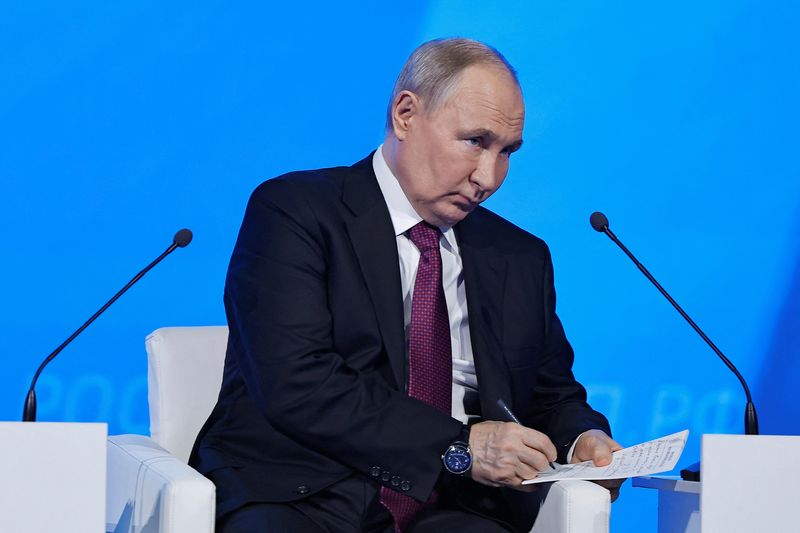MOSCOW (Reuters) - Russian President Vladimir Putin has reminded prosecutors that seizing assets and turning them over to state ownership is only justified in cases where failing to act might jeopardise Russia's national security.
Many assets in Russia have changed hands in the last two years. Hundreds of foreign companies left Russia after Moscow sent its troops into Ukraine in February 2022, in some cases selling cheaply to local management.
Moscow has taken temporary control of assets owned by several Western companies including Fortum, Carlsberg (CSE:CARLb) The number of cases where prosecutors seize assets through the courts, including those related to Russia's defence industry, has increased, with some related to privatisations that are around 30 years old. More than 1 trillion roubles' ($10.9 billion) worth of strategic enterprises and assets were transferred to state ownership by Russian courts last year, Prosecutor General Igor Krasnov said in March. "Recently, law enforcement agencies have initiated a number of cases to return some assets to state ownership," Putin told a Moscow business forum. "I would like to stress: we are not talking about a privatisation review, but about cases when the actions or inaction by the owners of enterprises and property complexes cause direct harm to the country's security and national interests. "The seizure of business is justified only in the situation I have just described." State property was widely auctioned off in the 1990s when so-called oligarchs amassed huge fortunes, creating a vast gulf between the super-rich and ordinary Russians. But, though some of those deals may have taken place without federal oversight, Putin said combing through deals from that time was not necessary if businesses were operating successfully. "Claims against current owners of assets are inappropriate, especially for those who work successfully, solve social issues and help ensure national security," Putin said. The finance ministry, meanwhile, has listed about 30 companies in which the state may reduce its shareholding, while keeping a controlling stake, as it seeks to foster more domestic private investment and bolster budget revenues. ($1 = 91.8240 roubles) 